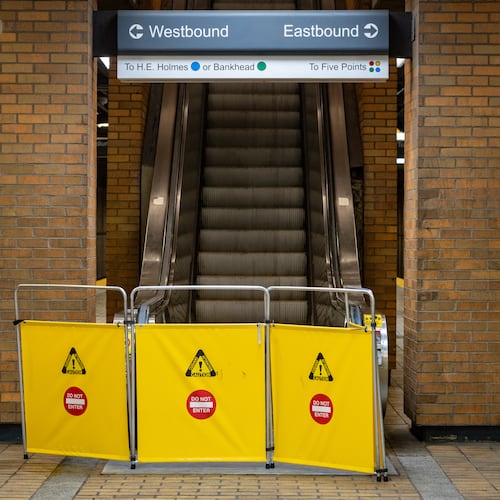The ability of anyone to walk in and watch what’s going on inside a courtroom has long been a hallmark of a free society and a way to maintain the integrity and fairness of the justice system.
In past years, however, so many Georgia judges blocked access to their courtrooms the state’s judicial watchdog agency became inundated with complaints. So the agency issued an advisory opinion that told judges they may close a courtroom, but only on a case-by-case basis and only after making a specific finding on the need to do so.
On Monday, the Georgia Supreme Court will hear arguments on the rule. The court is considering the case because a number of judges — specifically, the Council of State Court Judges — say the rule is too far-reaching.
The Judicial Qualifications Commission’s opinion, issued in August 2013, sought to address a number of blanket closures by judges in the metro area and throughout the state.
For example, the U.S. Supreme Court overturned a drug-trafficking conviction in DeKalb County because a judge barred the defendant’s uncle from the courtroom during jury selection. A federal judge told two South Georgia counties it was illegal for them to allow only a defendant’s immediate relatives into court during plea hearings.
Some judges barred children, whether they were quiet and behaved or not. Other judges locked courtroom doors during trial testimony. And numerous judges instructed their bailiffs to ask off-putting questions to people entering court — such as having them identify themselves and state their business.
In its court brief, the Council of State Court Judges said it is not advocating or supporting practices that systematically exclude individuals from the courtroom, nor does it dispute that the watchdog agency received a rash of complaints about judges closing courtrooms to the public.
“The opinion left many judges feeling uncertain about how its broad pronouncements squared with judicial discretion to maintain decorum and traditional practices, such as preventing entry to and exit from the courtroom during a charge to the jury,” wrote Atlanta lawyer Nathan Gaffney on behalf of the judges’ council.
The council said the law remains unclear as to whether judges may exclude minors from the courtroom when there will be salacious testimony; whether a bailiff may ask those seeking temporary protective orders whether they are victims or perpetrators; or whether judges may exclude late-arriving defendants until a calendar call is completed.
The Judicial Qualifications Commission’s attorney is Norman Fletcher, the former chief justice of the Georgia Supreme Court, who said the advisory opinion takes those concerns into consideration.
“The council’s arguments concerning ‘partial closure’ or ‘delayed admission’ ignore the fact that (the opinion) acknowledges the right of trial judges to control their courtrooms, but merely demands that standards be followed when such closure prevents access in a way that meaningfully infringes courtroom access rights established under the First Amendment and Georgia law,” Fletcher told the court.
The case is to be argued in the Supreme Court’s stately courtroom, which imposes no restrictions on those who wish to enter and observe. Says the court on its website: “Oral arguments are open to the public.”
About the Author
The Latest
Featured


